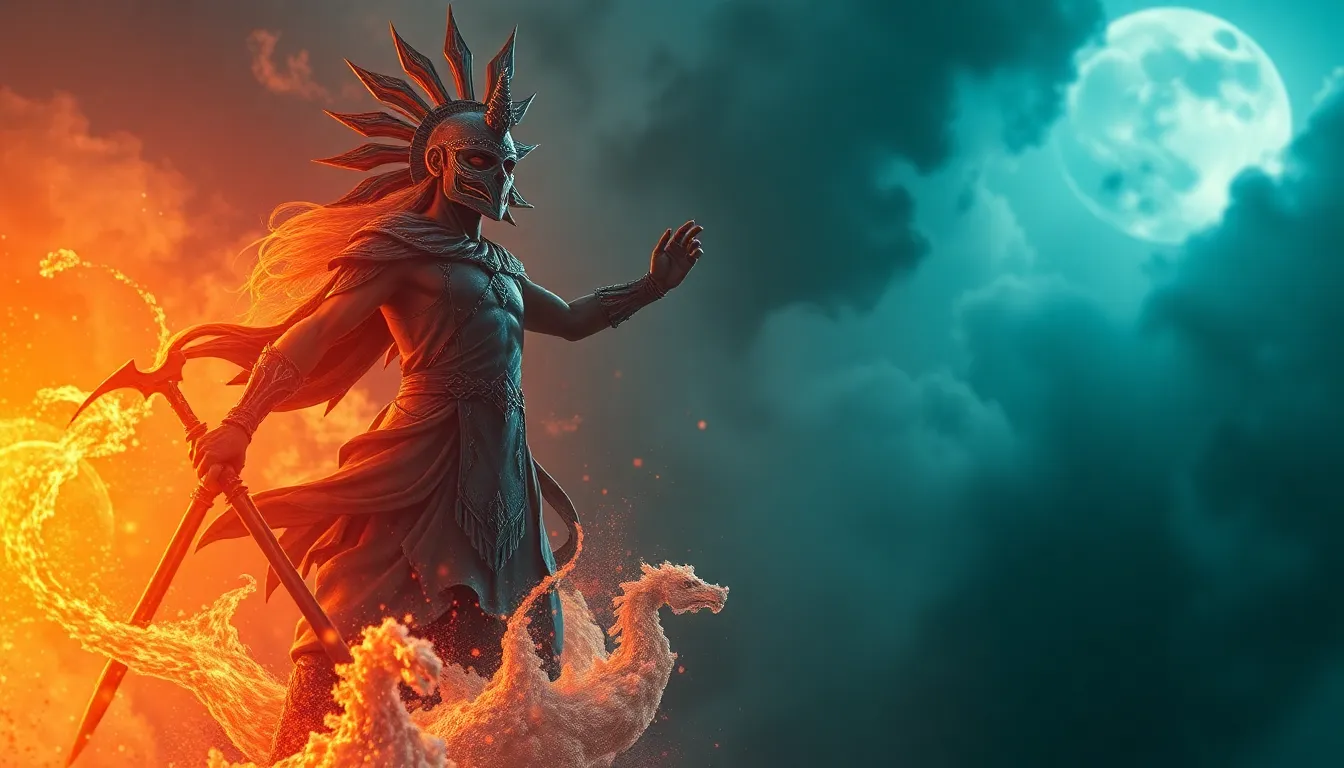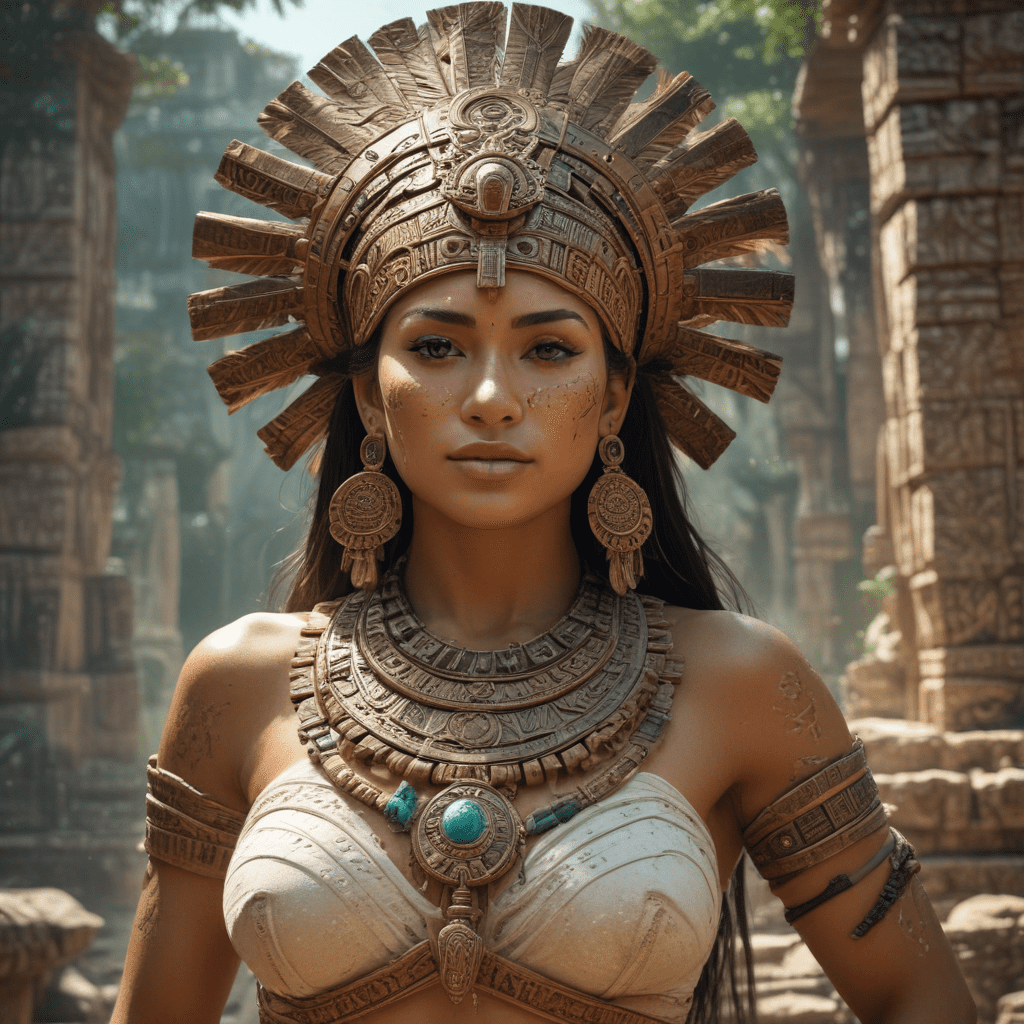The Fascinating World of Cultural Hero Myths and Their Lessons
I. Introduction to Cultural Hero Myths
Cultural hero myths are timeless narratives that emerge from the heart of human experience, encapsulating our hopes, dreams, and moral values. Defined as stories that feature heroic figures who undertake significant journeys, these myths serve as a lens through which we can understand various cultures and their shared human experiences. They play a crucial role in shaping societal norms, offering moral guidance, and providing a sense of identity.
This article will delve into the captivating world of cultural hero myths, exploring their universal themes, historical context, and the lessons they impart. Readers can expect to gain a deeper appreciation of how these myths have influenced societies throughout history and continue to resonate in modern culture.
II. The Universal Themes in Hero Myths
Across different cultures, hero myths share common characteristics that highlight universal themes. These themes often include:
- Courage: Heroes frequently face daunting challenges that test their bravery.
- Sacrifice: Many heroes must sacrifice their own desires for the greater good.
- Transformation: The hero’s journey typically involves personal growth and transformation.
These themes not only reflect the struggles faced by heroes but also resonate with the human experience, reminding us of the virtues we aspire to embody in our own lives.
III. Historical Context of Hero Myths
The origins of hero myths can be traced back to ancient civilizations such as Greece, Egypt, and Mesopotamia. In these cultures, heroes were often depicted as demigods or individuals with extraordinary abilities, serving as symbols of hope and strength for their people.
As history progressed, hero myths evolved, adapting to cultural changes and reflecting the values of different eras. For instance, the Greek hero Hercules exemplified strength and perseverance, while the Sumerian king Gilgamesh represented the quest for immortality and wisdom.
IV. Prominent Heroes in Mythology
Examining notable heroes across various cultures provides insight into their unique journeys and the moral lessons they impart:
- Hercules (Greece): Known for his twelve labors, Hercules embodies strength and resilience in the face of overwhelming odds.
- Gilgamesh (Mesopotamia): A historical king who embarks on a quest for immortality, Gilgamesh teaches the importance of friendship and self-discovery.
- Sun Wukong (China): The Monkey King’s journey in “Journey to the West” illustrates themes of redemption and the pursuit of enlightenment.
Each of these heroes not only represents specific cultural values but also offers timeless lessons about human nature and the importance of personal growth.
V. The Role of Hero Myths in Society
Hero myths play a significant role in shaping cultural identity and values. They often serve as a moral compass, guiding individuals and communities in their understanding of right and wrong. The influence of hero myths can be seen in various aspects of society, including:
- Laws: Many legal systems are founded on principles that are echoed in hero myths, emphasizing justice and morality.
- Customs: Rituals and traditions are often inspired by the stories of heroes, reinforcing community bonds.
- Social Norms: Heroic narratives help define societal expectations and ideals, influencing behavior and aspirations.
VI. Psychological Interpretations of Hero Myths
From a psychological perspective, hero myths can be analyzed through the lens of Jungian archetypes, particularly the concept of the hero’s journey. This journey typically consists of several stages, including:
- The Call to Adventure: The hero is summoned to embark on a quest.
- The Trials: The hero faces challenges that test their character and resolve.
- The Return: After achieving their goal, the hero returns transformed, imparting wisdom to others.
The psychological significance of hero myths is profound, offering insights into personal development and self-identity. They encourage individuals to confront their own challenges and aspire to greatness.
VII. Modern Adaptations of Hero Myths
In contemporary culture, hero myths have experienced a resurgence, particularly in literature, film, and media. Modern adaptations often reflect current societal values and concerns. Notable examples include:
- Superhero movies: Characters like Spider-Man and Wonder Woman embody modern-day heroism, tackling issues of justice and morality.
- Literature: Books like “Harry Potter” depict the hero’s journey in a relatable context, appealing to both young and adult audiences.
- Television series: Shows like “Game of Thrones” explore complex heroism and morality in a fantasy setting.
These modern heroes not only entertain but also challenge audiences to reflect on contemporary issues and values.
VIII. Lessons Learned from Hero Myths
Hero myths impart essential moral and ethical lessons that remain relevant today. Some key takeaways include:
- The Importance of Courage: Heroes inspire us to face our fears and stand up for what is right.
- The Value of Sacrifice: Many heroes teach us that personal sacrifice can lead to greater good.
- The Power of Transformation: The journey of a hero underscores the potential for growth and change within each individual.
These lessons can guide us in navigating personal challenges and making ethical decisions in our lives.
IX. The Future of Hero Myths
As we move further into a rapidly changing world, the relevance of hero myths continues to endure. They will likely evolve to address new societal challenges and cultural shifts. Predictions for the future of hero myths include:
- Diversity in Representation: Future hero myths may reflect a broader range of backgrounds and experiences, promoting inclusivity.
- Environmental Themes: As global issues like climate change rise, heroes may emerge who advocate for environmental stewardship.
- Technology and Progress: The influence of technology on hero narratives may lead to new stories that incorporate digital realms and virtual heroism.
X. Conclusion
Understanding cultural hero myths is vital in appreciating the complexities of human experience and societal values. These myths not only entertain but also educate, offering timeless lessons that continue to inspire and guide us today. As we explore the fascinating world of hero myths, we uncover the enduring truths that connect us all, reminding us of the hero within each of us.




